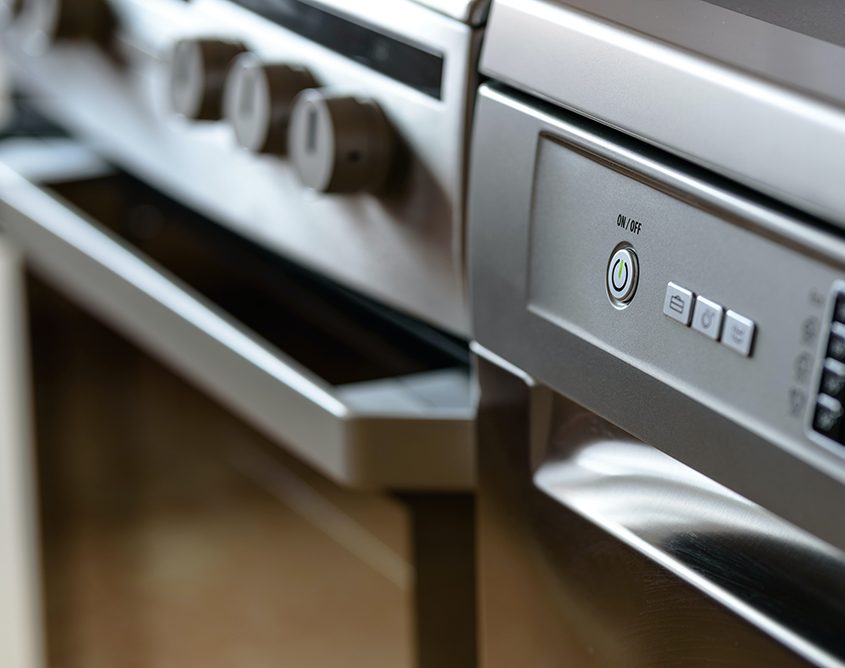Do I need an extended warranty for my appliance?
 The home buying process is typically structured to allow prospective buyers insight into any repairs they might need to make to the home. When drawing up a final offer, the homebuyer can even request that the seller make necessary repairs and replace appliances. For this reason, homeowners are likely to enter into their new residence with rose-colored glasses, assuming that no unexpected appliance repairs will come up in the near future. This misconception can be costly.
The home buying process is typically structured to allow prospective buyers insight into any repairs they might need to make to the home. When drawing up a final offer, the homebuyer can even request that the seller make necessary repairs and replace appliances. For this reason, homeowners are likely to enter into their new residence with rose-colored glasses, assuming that no unexpected appliance repairs will come up in the near future. This misconception can be costly.
Warranties exist to hedge some of the financial burden involved in addressing unexpected repairs and maintenance issues. When considering a warranty, homeowners typically choose between specific appliance extended warranties and general home warranties. To determine if appliance extended warranties are worth the cost, it is a good idea to compare them to both general home warranties and the risk of moving forward with no warranty at all.
Appliance Extended Warranty vs. Home Warranty
Appliance extended warranties cover a single appliance in your home. In contrast, home warranties cover multiple items under a single contract. For this reason, appliance extended warranties are almost always cheaper than general home warranties, because the bounds of their coverage are limited to specific appliances.
Home warranties typically charge a customer an annual fee, then a flat service call fee for covered items that is typically lower than what could be found outside the warranty. However, if extended labor and parts are required, this may come at an extra cost. Therefore, it is important for homeowners to consider just what is covered under both a home warranty and an appliance extended warranty. If both parts and labor are included in an appliance extended warranty, then it may actually be cheaper to cover one or two “big ticket” appliances such as HVAC units or refrigerators. But keep in mind that small repairs can add up fast, which may make home warranties the better option.
Appliance Extended Warranty vs. No Warranty
It is certainly possible that homeowners will reside in their new house for the term of their home warranty without ever needing to use the service. This, of course, would also mean that they wouldn’t have used an appliance extended warranty either. However, compared to no warranty at all, the utility of an appliance extended warranty cannot be emphasized enough. By investing the cost of a year of Netflix into an expensive appliance’s extended warranty, you are hedging your bet that nothing will happen that would otherwise result in a significant expense.
Final Considerations
In the home buying process, it is possible that the buyer and seller will go through rounds of negotiation on what repairs will be made prior to close. For homeowners that had a concern about a specific appliance but agreed this didn’t need to be addressed prior to closing, an extended warranty on that appliance can give them much needed peace of mind.
Prospective buyers can also put a clause in their closing contract that requires the seller to purchase an extended appliance warranty for them. This can be a mutually beneficial solution, as it allows the seller to spend significantly less than the cost of a repair, and the buyer gets the peace of mind that a warranty provides.
Extended appliance warranties are a great way to mitigate the financial burden of unexpected appliance repairs for new homeowners. For this reason, extended appliance warranties should always be part of the conversation when engaging in the process of buying a home.
At Diamond Appliance, we help homeowners in St. Louis, Kansas City, Independence, St. Charles, and surrounding communities with expert appliance repair both in and out of warranty. In fact, we are the preferred service provider for many popular brands, including KitchenAid, Maytag, JennAir, Whirlpool, and more. If your appliance is giving your trouble and is under warranty, call your manufacturer to schedule your repair. If not, call Diamond today.




